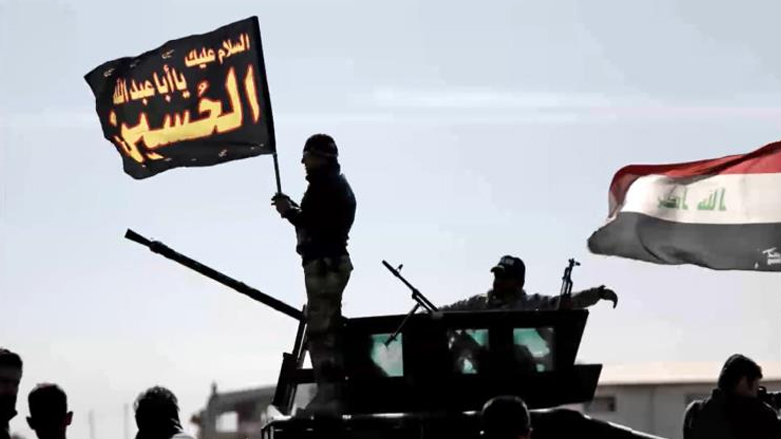UN representative and Sistani agree on Hashd al-Shaabi disengagement

ERBIL, Kurdistan Region (Kurdistan 24) – UN Special Representative for Iraq Ján Kubiš reaffirmed the need for militias to lay down their weapons and not participate in the country’s upcoming elections after meeting with Iraqi Shia Spiritual Leader Grand Ayatollah Ali al-Sistani.
Kubiš, the Special Representative of the United Nations Secretary-General (SRSG) for Iraq, met with Sistani on Wednesday in Najaf, where the influential cleric is based.
The UN statement asserted that Sistani and Kubiš agreed on the importance of ensuring the “full implementation of the PMF law,” requiring the Popular Mobilization Forces (PMF), also known as the Shia Hashd al-Shaabi, to fall into the ranks of the army and not participate in the elections.
“We cannot support any violations of the constitution and laws of the country,” the statement read.
Kubiš reinforced the point that weapons should remain “exclusively in the hands of the state and under its control,” echoing comments previously made by US Secretary of State Rex Tillerson.
The top American diplomat called on the Iranian-backed militias to “lay down their weapons” once the fight against the Islamic State (IS) ended, and allow the political process to proceed without their interference.
Sistani has the power to exert influence on millions of Shias in Iraq and is rarely challenged by Iraqi politicians and leaders in the PMF.
In 2014, the cleric issued a fatwa against IS following the militant group’s surprise attack on Mosul, Tikrit, and areas on the outskirts of Baghdad, signaling the beginning of the Hashd al-Shaabi’s involvement in Iraq’s weakened national security apparatus.
Iraq is scheduled to hold parliamentary elections on May 15, 2018, once the Iraqi Parliament ratifies the government’s proposal.
Iraqi Prime Minister Haider al-Abadi has repeatedly stated that political factions of the militia groups would not be allowed to participate in the elections.
Many leaders have challenged the policy, claiming fighters could run as long as they resign from their positions within the PMF.
Just this week, PMF spokesperson Ahmed al-Asadi announced his resignation, adding he will be the official spokesperson for the “Coalition of the Mujahideen,” which will participate in the upcoming Iraqi elections.
The vast majority of armed factions have political wings already operating in the Iraqi government, especially those that receive support and funding from Tehran.
Editing by Karzan Sulaivany
